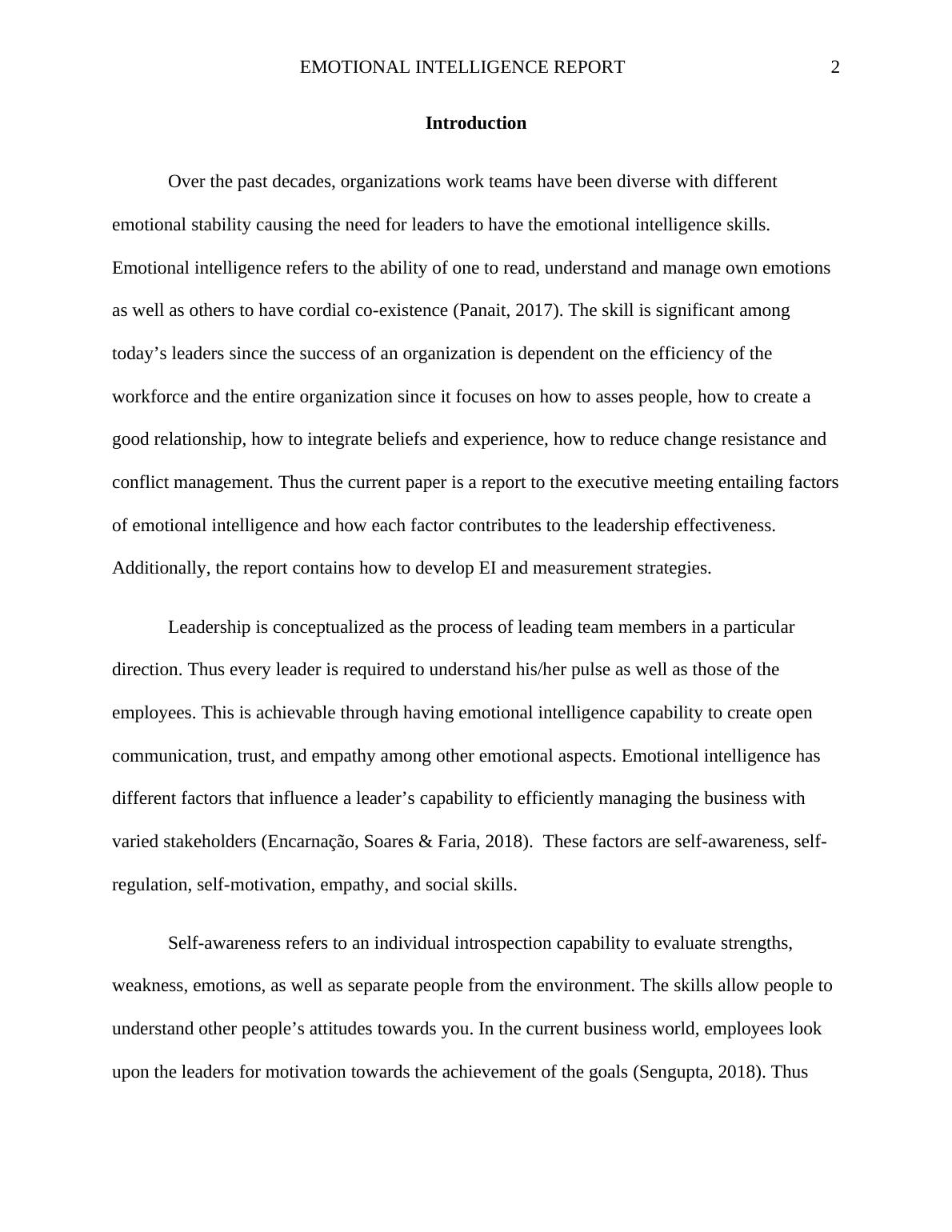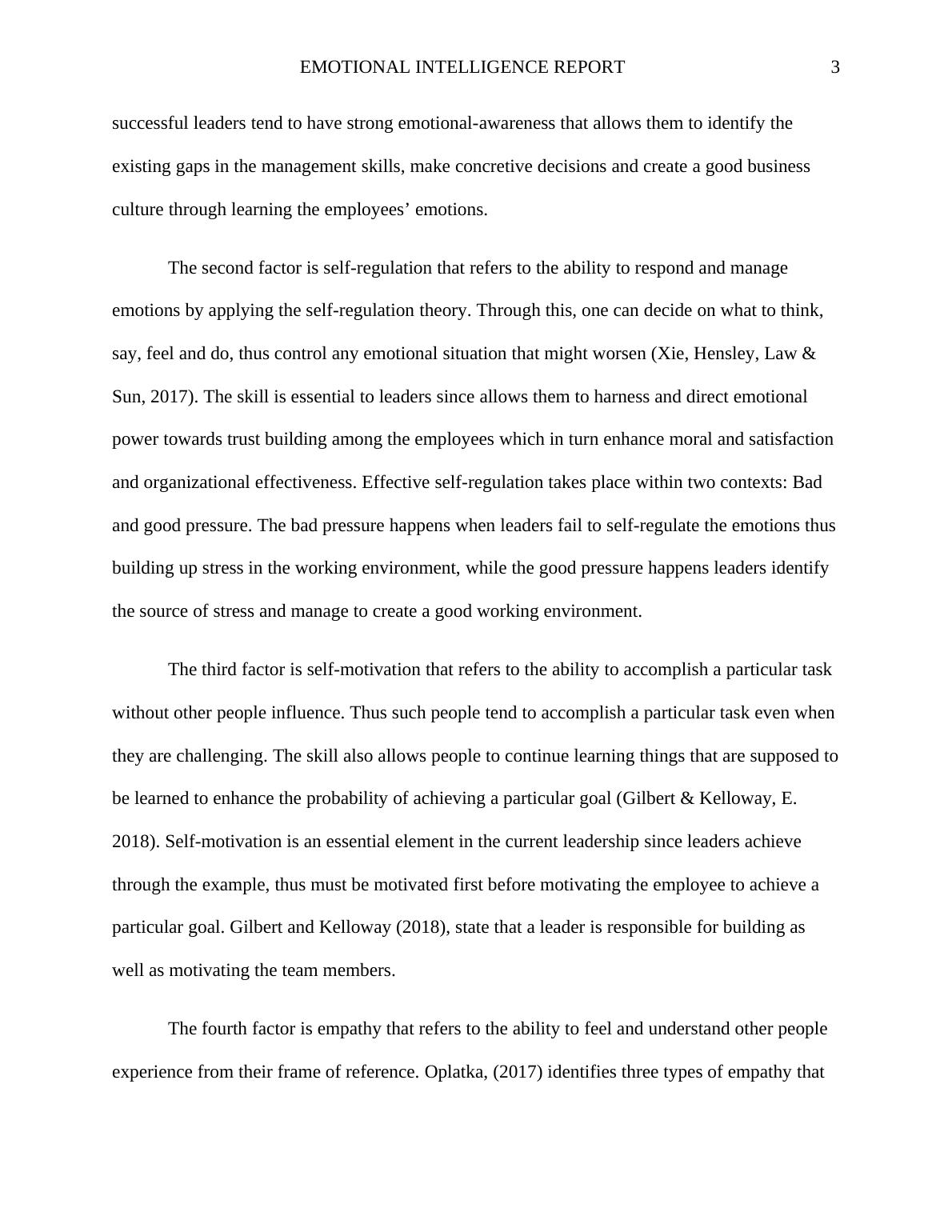EMOTIONAL INTELLIGENCE REPORT.
Prepare a business report on Emotional Intelligence that addresses factors of Emotional Intelligence, their link to leadership effectiveness, whether emotional intelligence can be taught, and how it can be recognized.
8 Pages1900 Words46 Views
Added on 2023-01-23
EMOTIONAL INTELLIGENCE REPORT.
Prepare a business report on Emotional Intelligence that addresses factors of Emotional Intelligence, their link to leadership effectiveness, whether emotional intelligence can be taught, and how it can be recognized.
Added on 2023-01-23
ShareRelated Documents
End of preview
Want to access all the pages? Upload your documents or become a member.
Importance of Emotional Intelligence in the Workplace
|30
|4239
|246
Learning About Emotional Intelligence for Improving Professional Relationships
|8
|1738
|79
Balancing of Emotions by Leaders
|9
|2465
|62
Importance of Emotional Intelligence for Effective Leadership
|11
|2964
|492
Theories and Models of Leadership
|4
|798
|238
Importance of Emotional Intelligence in Healthcare Leadership
|13
|3194
|339



